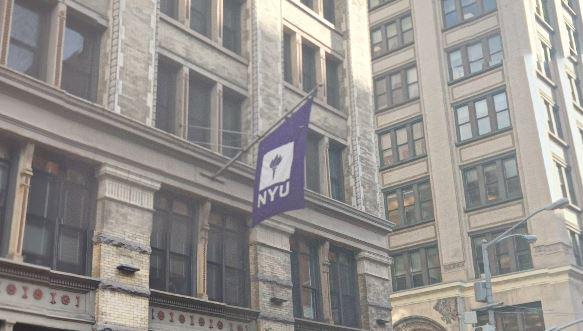On Thursday, during the last faculty meeting of the year, New York University Department of Social and Cultural Analysis faculty members voted overwhelmingly in favor of implementing a resolution of….

On Thursday, during the last faculty meeting of the year, New York University Department of Social and Cultural Analysis faculty members voted overwhelmingly in favor of implementing a resolution of non-cooperation with the university’s Tel Aviv campus. Only one faculty member opposed it.
A non-cooperation resolution was passed at the previous faculty meeting and as part of its implementation, SCA will not officially sponsor faculty teaching at the study abroad program or dedicate resources to faculty exchanges. Faculty members and students aren’t barred from conducting research at the Tel Aviv site and students do not need permission or letters of recommendation to study abroad in Tel Aviv. However, both faculty members and students were asked to “act in the spirit” of noncooperation.
Students on both sides of the Israel and Palestine conflict have clashed on several occasions and a group of pro-Israel students recently filed a complaint with the Department of Education’s Office of Civil Rights.
Implementing the non-cooperation resolution, NYU Professor Andrew Ross told Newsweek was less about taking a stance against Israel and more about upholding the university’s own values.
“The university is bound by these ethical principals of nondiscrimination and equal opportunity and if some of our students and faculty can’t access a program, then that’s a real problem,” Ross said.
In 2017, Israel’s parliament passed an amended law that prohibited anyone who is not an Israeli citizen or has a permanent residence license from entering the country if they’ve publicly called for a boycott against Israel or made a commitment to participate in such a boycott.
This, Ross said, proved to be a problematic law when it came to all faculty and students enjoying the same level of academic freedom.
“Of course, there are students and faculty who cannot go there so it’s not a level playing field,” Ross explained. “Their academic freedom is already being restricted and of course, that’s the motivation for the resolution.”
NYU spokesman John Beckman said the university has not had a student denied entry to Israel to study at their Tel Aviv campus, although he did not clarify if any of those students were involved in prohibited activities outlined by Israel’s law. He said the university’s position on academic boycotts of Israel is “clear,” that they are at odds with Univesity policy and the tenets of academic freedom.
“With respect to this departmental vote: it’s a little puzzling as to what form it would take, as our Tel Aviv campus does not draw on the department of social and cultural analysis for its academic program,” Beckman added.
Rose Asaf, a Jewish-Israeli and member of both Students for Justice in Palestine and Jewish Voice for Peace, told Newsweek that the resolution wasn’t a “boycott” and if there was a campus in another country that prohibited students from entering, they would propose a similar resolution.
“The reason we are specifically focusing on the NYU Tel Aviv campus is because Israel has a law on the books saying that students who adhere to the boycott, students who are part of these organizations and have such and such ideology will not be let in,” Asaf said. “They lay it out clear for us. This isn’t the case with any of NYU’s other study away sites.”
She called NYU’s global network a “flawed system” with discriminatory and oppressive implications, but called the non-cooperation with the Tel Aviv a “start.”
“I think it sends a message to the university that again, the global network that NYU has constructed is flawed, it’s exclusionary, it’s discriminatory and it’s against NYU’s own code of ethical conduct,” Asaf said. “With the existence of a university in a country that discriminates against students and faculty on an ideological and also racial basis, that’s in direct contradiction to the values that NYU claims to espouse.”
Michael Low, a student at NYU and the vice president of Realize Israel, told Newsweek that although it’s “non-cooperation,” it’s “essentially yet another boycott of NYU’s already marginalized Jewish community.” Their goal, Low said. should be to “tear down walls and barriers in the world and not put them up.”
“If you are a champion of peace, start demonstrating your ability to create peace locally by treating all students with respect, even if they do not share your views,” Low said.
NYU also has a campus in Abu Dhabi, which, in 2017, the university’s Journalism Department severed ties with. The decision to discontinue the relationship came after two professors, Mohamad Bazzi and Arang Keshavarzian, both Shiites, were denied work visas to the United Arab Emirates (UAE), which they suspected was because of their religious affiliations.
